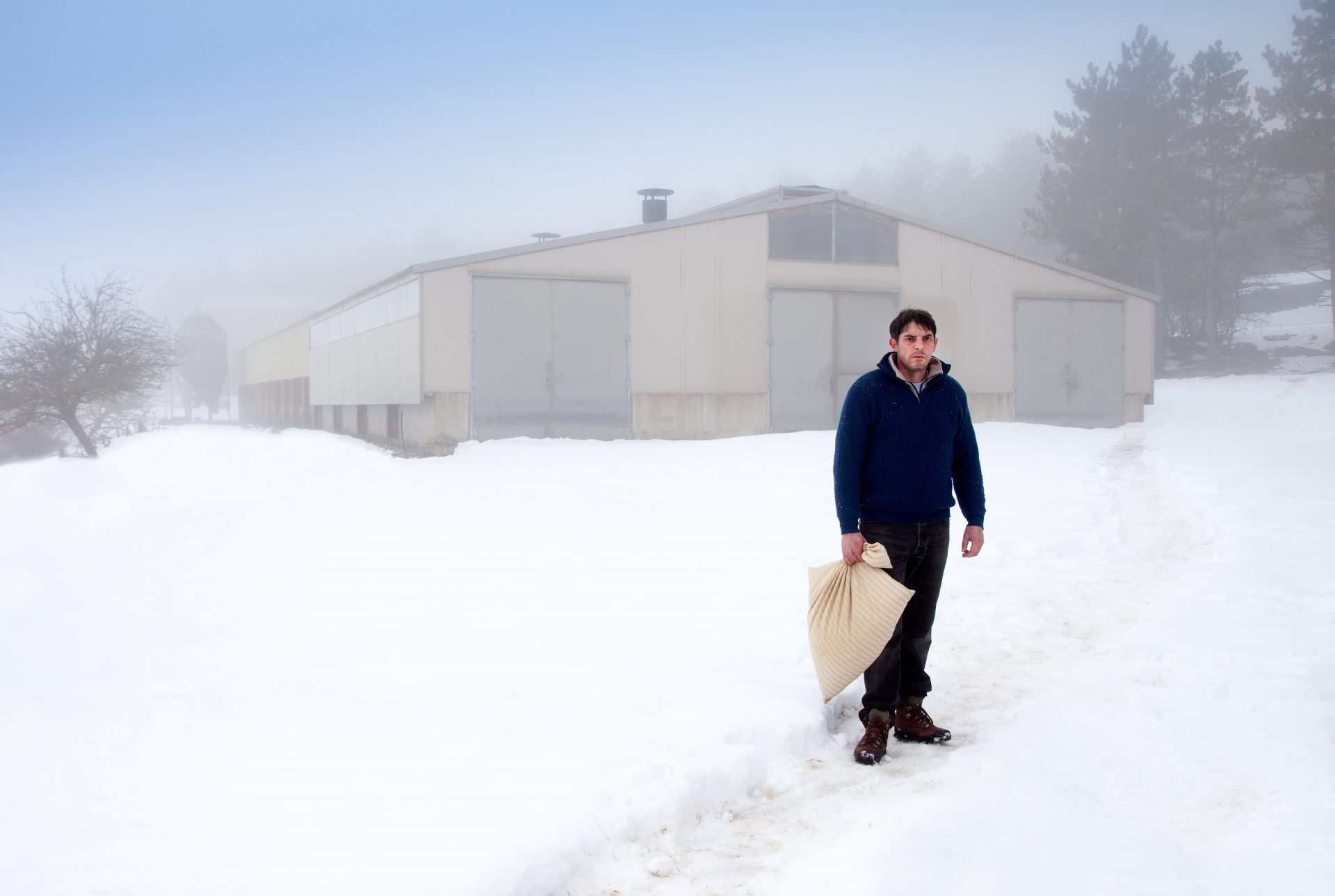The writer-director team of Gilles Marchand and Dominik Moll found themselves in arthouse vogue at the start of the century after signing off on two very knowing, playful, ultra-cineliterate thrillers: 2000's Hitchcockian Harry, He's Here to Help and 2005's Buñuelian Lemming, in which Charlotte Gainsbourg's life fell apart after the titular creature lodged in the U-bend of her sink. The pair's latest collaboration, Only the Animals, operates in a less obviously larky mode, although this adaptation of a Colin Niel novel isn't without its quirks and unexpected, sometimes questionable turns in the road. The first of these comes early. The film opens on the sight of a young Ivorian (Guy Roger "Bibisse" N'Drin) cycling through the parched streets of downtown Abidjan with a baby goat slung around his neck, before almost immediately relocating to a mountainous berg in the Massif Central, home to a woman caught between a rock and a hard place. This is Alice (Laure Calamy), and we join her as she leaves her distant farmer husband Michel (Denis Ménochet) to his cattle and heads off to see Joseph (Damien Bonnard), the grunting, generally uncommunicative neighbour she's been having it away with. Nobody's talking much, which is a problem for the local gendarme when he shows up investigating the disappearance of a well-to-do woman - and we know she has to be more than a plot point, because the photos the police issue are of Valeria Bruni Tedeschi, grande dame of European cinema. If there is a mid-20th century auteurist influence to be discerned amid what follows, it'd be the Kurosawa of Rashomon: Moll chops freely between each of his main players, their movements throwing up previously hidden secrets and connections like spindrift.
It's not new, but this narrative intricacy is intriguing up to a point. Over two hours, this story encompasses not just all of the above, but a clingy waitress (Nadia Tereszkiewicz) with ties to most of the main characters, and we eventually discover what part that goat-scarf has to play in proceedings, beyond establishing a thematic link between humans and wild beasts. What Marchand and Moll have jettisoned on the long climb up this mountain, however, is that ludic humour which elevated their breakthrough films. Without it, Only the Animals begins to resemble any other post-Iñárritu exercise in mirthless mosaic-making; it assumes the air of a charity shop worker setting about a jigsaw not for pleasure, but to ensure all the pieces are present and correct. More damagingly, any elements that might have been savoured as absurd - the dream Joseph has about his late mother, a conveniently placed sinkhole, a fatal case of mistaken identity - instead start to seem ever so slightly silly. The more those pieces slot into place, the more Only the Animals comes to feel a bit suspect: it's one of those thrillers that depends on its characters acting dumber than the livestock - a faint metropolitan sneer is evident in its depiction of a rural community of rubes, weirdos and hicks - and despite diligent location shooting, the African strand plays like a residual airport-novel trope, designed to prey upon the fears of stupid white folk. Hard not to conclude that the structural filigree has been applied to mask the fact these creatives couldn't get the dramatic basics to play - or that they knew they would only play with a degree of viewer prejudice. There's a lot of globetrotting content available this week, as distributors propose their own ways of easing us all out of lockdown; Moll's film, regrettably, arrives as the least persuasive by some distance.
Only the Animals will be available to stream via Curzon from tomorrow.

"Bete" = "stupid". (oh, and "Seules" = "lonely") Yes, we are meant to think they are stupid. And stupid partly because they are so isolated. Yes, we are meant to laugh at them.
ReplyDelete